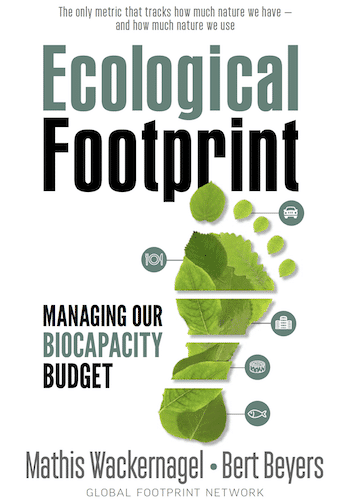 Earth Overshoot Day is not just one special day of the year. It is an effort to celebrate biocapacity — our planet’s biological power to regenerate life. This primary productivity of nature is the source for all life, including human life.
Earth Overshoot Day is not just one special day of the year. It is an effort to celebrate biocapacity — our planet’s biological power to regenerate life. This primary productivity of nature is the source for all life, including human life.
Although the term was coined in the 1990s, biocapacity is not a recent invention or a method. Like gravity, it is a force of nature that can be observed and measured.
The relevance of biocapacity is rising. Biocapacity and how we manage it is increasingly determining humanity’s future as we face the daunting challenges of climate change and resource constraints. Humanity’s poor stewardship of biocapacity has made it the most materially limiting factor for the human enterprise. Therefore, understanding biocapacity’s relevance empowers us to design cities and economies with significantly higher chances of long-term success (one-planet prosperity), while ignoring it will keep us on the business-as-usual path. We all know where the latter is headed (one-planet misery).
This, and more, is explained in Ecological Footprint: Managing Our Biocapacity Budget, published in September 2019. Twenty-five years after Mathis and Bill wrote their first book to introduce the Ecological Footprint, an update was needed to demonstrate with fresh insight how ecological overshoot is shaping the 21st century. This led to this comprehensive yet easy-to-understand book.
The book shows that the only path forward, for humanity’s sake, is to run our economies on nature’s regeneration, not on natural capital liquidation. It emphasizes that it can be done. The key tool for the job is Footprint and biocapacity accounting, applied to countries, cities and companies.
MORE INFO
You can buy copies directly from the publisher, your bookstores, or from any other distributor. We worked hard to keep the price low so the book is accessible to anybody. All royalties will help support Global Footprint Network.
Excerpts (brief and extended excerpts available)
Note to Teachers: this book is well suited for college classes, discussion groups or book clubs as it is accessible, well-illustrated, and filled with examples.
Why this book matters: Resource accounting is essential to avoid ecological bankruptcy. Learn why and how.


